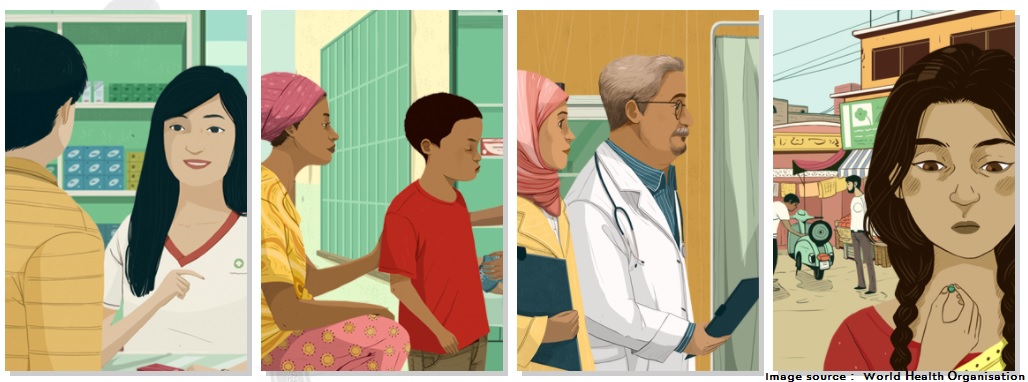Overprescription and misuse of antibiotics are the prime drivers of antibiotic resistance, especially in India. Getting to the root of this problem is of utmost importance because it helps us to understand where we should strike the antibiotic resistance. This study has identified the background factors leading to the overprescription and misuse of antibiotics in India.
Qualified doctors viewed antibiotics as a vital part of treatment. Some doctors refused to prescribe antibiotics without a clinical indication. Some had the belief that antibiotics are necessary to get cured of diseases, especially in a life-threatening condition. On the other hand, informal healthcare providers (IHP) prescribed antibiotics to every single patient to retain the patients. They perceived the use of ‘light antibiotics’ as first aid treatment. If the condition of the patient did not change then, ‘high/ double antibiotics’ or fixed drug combinations got disbursed. The doctors, informal health care providers, and pharmacy shopkeepers gave in to the patient’s demand for the fastest cure possible using antibiotics. The study found out that most of the doctors resorted to prescribing antibiotics to prevent superadded infections due to unhygienic conditions, lack to follow up and uncertainty in diagnosis.
The study threw light onto the role of pharmaceutical company respective (PCR) in driving the problem of over-prescription of antibiotics. PCRs were the prime source of new knowledge for healthcare providers. PCRs commonly demanded to prescribe their antibiotics.
In a country like India with a low doctor to patient ratio, pharmacists and nurses also take up the role of doctors to prescribe antibiotics for minor illnesses. In centers where doctors are available, the situation was no better. The doctors prescribed antibiotics based on the availability in that facility in place of evidence-based prescription.
Viewing from the patient’s side showed the entire prescription and overuse of antibiotics from a different angle. Patients always expect an immediate cure for their illness. Patients expect health care providers to spend more time for consultation and counseling and deal with them respectfully. Most of the patients visited IHPs because they were available and accessible to the patient when needed, explaining in detail about their disease condition and treatment. The government health system was the last resort because of the long waiting times. Patients also switched their medical providers frequently to seek the fastest cure.
So now we know whom to target for awareness on which aspect and how!!
To read more, kindly visit the website of Plos One through the link







